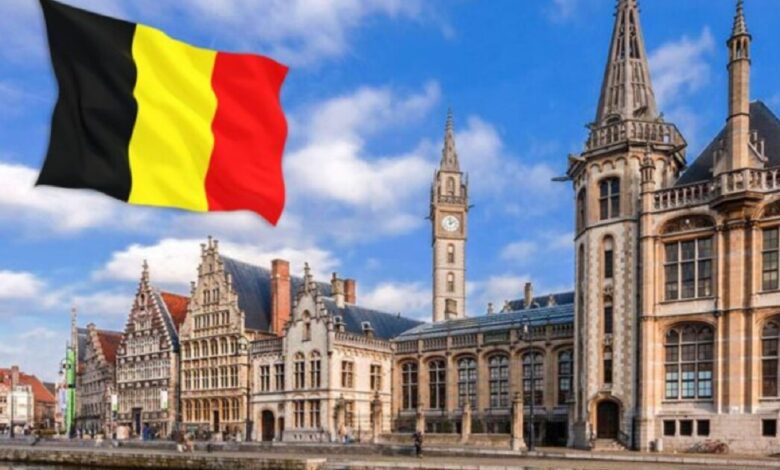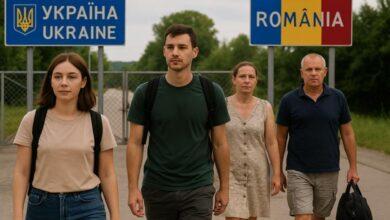Belgian Parliament approves government initiative to limit opportunities for refugee family reunification

In recent years, Belgium remained for many Ukrainians one of the countries where they could find refuge from the war, integrate into the social system and gradually build conditions for family reunification. Since the beginning of the full-scale invasion, Ukrainian refugees have been able to obtain temporary protection, enjoy basic state guarantees, and apply for reunification with immediate family members. However, in the summer of 2025, the Belgian government adopted a package of legislative changes that significantly complicates this process. The mechanism of family reunification, which was previously considered one of the key tools for the integration of migrants, has undergone not only a technical but also a conceptual transformation.
The time frame that determines the fate of the family
The Belgian Parliament has approved a government initiative aimed at limiting family reunification opportunities. This is a mechanism that gives the right to foreigners with legal status in the country to submit requests for the arrival of close relatives. It is reported Euronews.
One of the key points of the new version of the law was a significant time limit: now refugees have only six months to submit an application for family reunification. This means that a person who received the status of international protection in Belgium has six months to collect all documents, organize contacts with the consulate, go through the system of preliminary approvals, confirm financial conditions and submit a formal request.
The new regulations introduce restrictions that actually reduce the number of persons able to exercise their right to family reunification. At the same time, for the Ukrainians themselves, these changes mean an increase in the burden – both emotional and bureaucratic. It is not just about increasing waiting times or complicating procedures, but about a deeper process — rethinking the very principle of protection: from the idea of humanitarian support to the policy of deterrence. The consequences of the innovations can only be understood in the context of the specific requirements that the government has set for the refugees.
If it is not a person with refugee status, but a so-called recipient of “additional protection” – for example, under the procedure of temporary humanitarian admission – the waiting period for the opportunity to submit an application increases to two years. Such an approach automatically creates inequality between categories of persons who are in fact in the same legal environment and fled from the same war.
These time limits have specific consequences. A person who is late in submitting documents due to illness, lack of official income or a long search for rented accommodation loses the opportunity to legally reunite with his family. Thus, even a short-term deviation from the ideal bureaucratic schedule can derail a vital plan.
Financial requirements that become a barrier
At the same time as the time frame, the Belgian authorities introduced a new threshold for the applicant’s financial capacity. From now on, you need to earn at least €2,300 net per month to apply for reunification. This amount already exceeds the previous threshold by 200 euros. In addition, an allowance of 10% is introduced for each additional family member. If a person wants to bring a partner and two children, their income must be at least €2,700 net.
This amount is not symbolic – in Belgian society itself, it is considered difficult to achieve. The representative of the non-governmental organization Vluchtelingenwerk Vlaanderen Thomas Willekens bluntly stated that even the average Belgian worker does not earn that much. That is, a refugee who, during the first year of his stay in the country, is just beginning to adapt, learn a new language, look for a legal job and establish a life, must demonstrate financial stability, which is actually unattainable even for local residents.
It should be emphasized separately that it is not about the total income of the family, but about the net individual income of the applicant, confirmed by official sources. Conditional part-time work, cash assistance from relatives or temporary contracts are not taken into account. This means that the majority of Ukrainians who work in sectors with minimum pay — cleaning, logistics, care, agriculture — have no chance to meet these requirements.
Institutional complication
Against the backdrop of changes to the family reunification procedure, the government also reviewed other aspects of migration policy, including naturalization conditions. The application fee for Belgian citizenship will immediately increase more than six times: from 150 to 1,000 euros. The move shows an intention to reduce the number of applicants, particularly among migrants who consider Belgium as a permanent country of residence.
Thus, Belgium sets a clear barrier: the path to a stable status in the country is open only to those who not only withstand the psychological and cultural challenges of adaptation, but also demonstrate high economic self-sufficiency.
Asylum and Migration Minister Anneline Van Bossuet, who pushed the changes, said society could no longer bear the burden. In her opinion, the influx of migrants should be reduced. The legislative initiative is aimed at curbing one of the most widespread lines of arrival to the country — precisely through the family reunification scheme.
According to official data from the Belgian Office for Foreigners, last year alone, more than 20,000 people from countries outside the EU received visas under this procedure. This number is considered critical by the authorities, given the burden on infrastructure, housing stock, healthcare and education systems. At the same time, the thesis that the very structure of social support cannot withstand new challenges and needs revision is increasingly being heard in the public space.
What does this mean for Ukrainians?
For Ukrainian citizens who are in Belgium on the basis of temporary protection or refugee status, these changes create a new reality. If previously the main challenge was to collect documents and wait for a decision, now there is a requirement for a stable and high income, clearly limited filing deadlines and increasingly higher fees for further legal steps. Families in which part of the family is still in the territory of Ukraine or another third country are especially vulnerable. Waiting, which was a matter of time, now becomes dependent on income and accuracy in timing.
In a situation where the war continues and Ukrainians continue to be torn between the front, evacuation and the construction of a temporary life in Europe, the changes proposed by the Belgian government signal a new logic – increased selection instead of increased support. Belgium is increasingly positioning itself as a state that chooses a policy of “resource selection” rather than “open doors”. This does not cancel humanitarian protection, but it makes any movement towards stability – family, financial, legal – much more difficult. For many Ukrainians, this means the need to form new survival strategies, including rethinking the migration route itself and the role of the receiving country.





